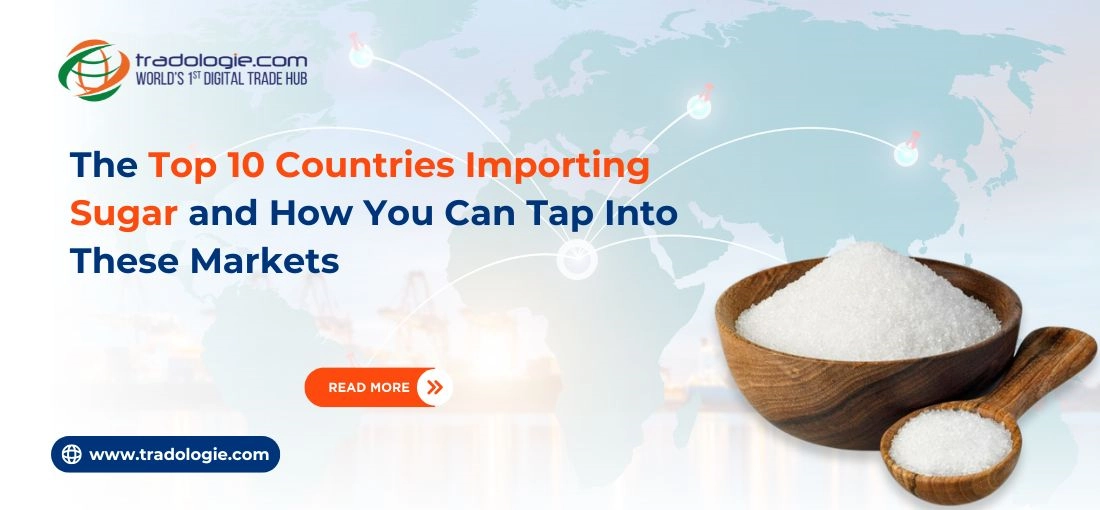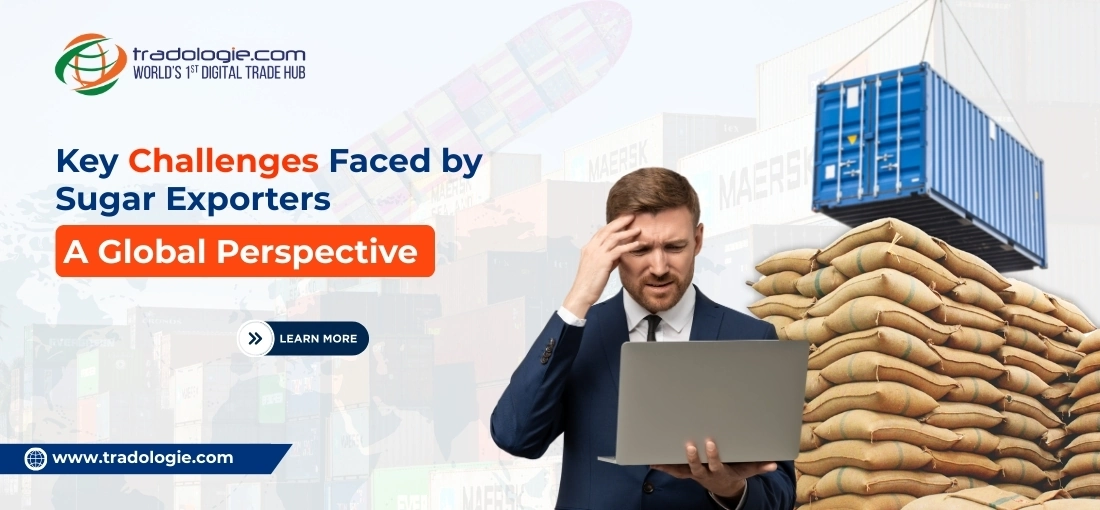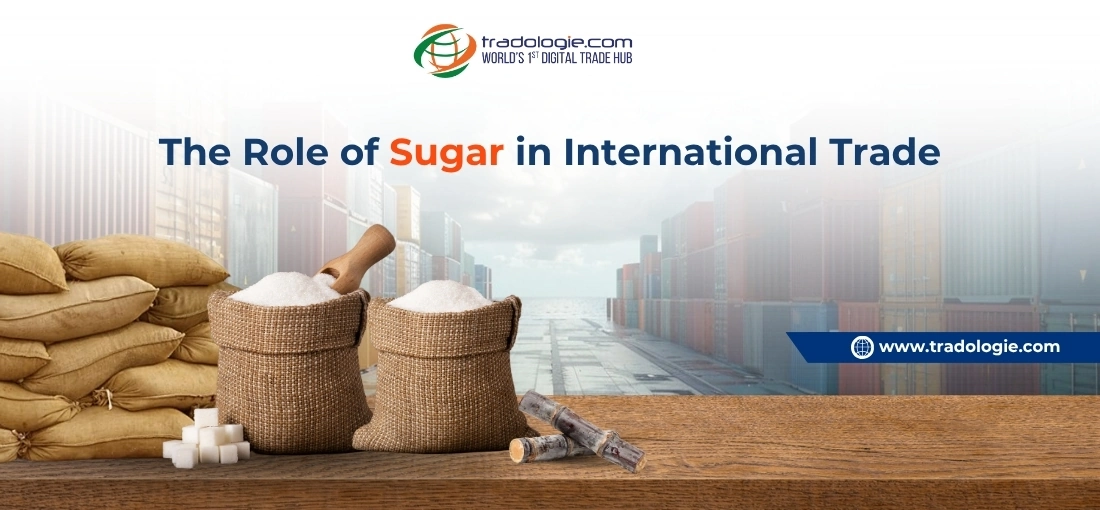The Top 10 Countries Importing Sugar and How You Can Tap Into These Markets
It is said that some of the attributes of human civilization remain unchanged and endure across the ages. The sweetness of sugar has profoundly woven itself into our food chain since time immemorial. It is estimated that the first domestication of sugar was around 8000 BCE.
Fast forward to the 21st century, this sweet gift of nature is one of the high-volume and liquidity-driven products that witness enormous demand across the globe. Its global market size was estimated to be an enormous USD 66.39 billion in 2023.
You are at the right place if you are a sugar exporter. This informative blog will provide you with valuable information on the top sugar-importing countries and how you can tap into top buyers. So, let's get the ball rolling.
What Are the Top Sugar-Importing Countries Globally?
China ($3.68 billion annual imports):
China is one of the world's largest importers of sugar. Interestingly, China has well and prosperous Rice, Wheat, and Corn production, but the country significantly lacks sugarcane production.
However, recently, the Dragon has invested a lot in boosting its sugar refinery infrastructure. Yet, the Sugarcane production is still negligible, and the country relies largely on foreign imports.
Indonesia ($3.30 billion annual import):
Indonesia is the second-largest sugar importer in Asia and faces a significant shortfall in production to meet its local demand. The country imports large quantities of raw sugar to support its food and beverage industry. Sugar exporters find Indonesia a stable shipping destination with a consistent demand. The market is price-sensitive and demands competitive pricing from exporters.
Germany (2.27 billion annual imports):
Germany is among the top European countries that import the most sugar.
Germany is among the top European countries that import the most sugar. While the country does have considerable sugar beet production. However, it still heavily relies on sugar importers to support its large-scale local food processing industry. The country has a wide-spread network of b2b merchant importers and it prioritizes certifications, traceability, and stable fulfilment timelines. Thus, this country is a highly lucrative bid for those looking towards European markets.
Netherlands: (1.84 billion annual imports)
The Netherlands isn't just an importer, it's also a re-exporter of sugar. This is because of the strategic location that makes it an entry point in European countries. This Dutch country has a well-established sugar-refining infrastructure, and the reason why many European countries import sugar in bulk from it.
United Kingdom: ($1.83 billion annual import)
The United Kingdom (UK), as a sugar importer, was heavily reliant on European countries to buy sugar. However, post-Brexit, the country of Englishmen has diversified its import partners and looked to non-European countries like Brazil. The UK, in general, is a net importer of sugar and consumes more than it produces domestically.
How to tap into the top sugar buyers globally?
The sugar trade industry is also highly scattered, just like any other agro-commodity market. Its trade is defined by a tangled web of middlemen.
Between the initial benchmark price and the FOB price, the middleman is notorious for adding a large chunk of commissions and inflating the prices.
Leveraging Commodity Platforms:
Registering on the b2b commodity platforms in this digital age that provide genuine import requirements from the verified top sugar importers is worth the investment. Indeed, this industry is still largely influenced by traditional trade methods. However, the truth is also large-scale age importers have also shifted to the digital means of negotiating deals.
Quoting Competitive Pricing:
There is a common saying in the age trade industry that the only thing the buyers look for post the quality certifications is the pricing. Your pricing is all that makes a significant difference in getting trade deals. But the question is, how do you know what pricing other suppliers are offering? Platforms like Tradologie have made it highly convenient, where you can instantly access the lowest pricing being offered by their counterparts.
Just a few clicks and you can quote a slightly lower price to stay competitive.
Ensuring Quick Dispatch:
The quick dispatch of your shipment is directly proportional to the quality experience you provide to your buyer. While the shipping routes play the most significant role in determining the delivery timelines. However, choosing an efficient CHA and a logistics company with a flawless track record does add up to expediting the dispatch time and making the buyer feel valued.
Conclusion:
Finally, sugar has been a valuable food commodity since time immemorial. This commodity is of paramount significance in the global food and beverages industry. The buying pattern is diverse and is spread across the length and breadth globally. Tapping into the top sugar buyers' demands, strategic planning through modern-day b2b commodity platforms.



